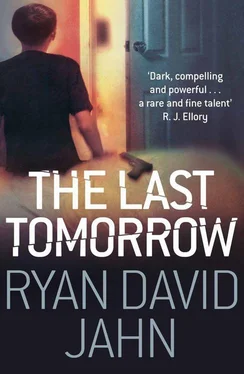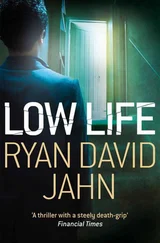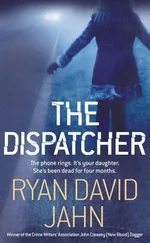Ryan Jahn - The Last Tomorrow
Здесь есть возможность читать онлайн «Ryan Jahn - The Last Tomorrow» весь текст электронной книги совершенно бесплатно (целиком полную версию без сокращений). В некоторых случаях можно слушать аудио, скачать через торрент в формате fb2 и присутствует краткое содержание. Год выпуска: 2012, ISBN: 2012, Издательство: Macmillan Publishers UK, Жанр: Триллер, на английском языке. Описание произведения, (предисловие) а так же отзывы посетителей доступны на портале библиотеки ЛибКат.
- Название:The Last Tomorrow
- Автор:
- Издательство:Macmillan Publishers UK
- Жанр:
- Год:2012
- ISBN:9780230766501
- Рейтинг книги:4 / 5. Голосов: 1
-
Избранное:Добавить в избранное
- Отзывы:
-
Ваша оценка:
- 80
- 1
- 2
- 3
- 4
- 5
The Last Tomorrow: краткое содержание, описание и аннотация
Предлагаем к чтению аннотацию, описание, краткое содержание или предисловие (зависит от того, что написал сам автор книги «The Last Tomorrow»). Если вы не нашли необходимую информацию о книге — напишите в комментариях, мы постараемся отыскать её.
The Last Tomorrow — читать онлайн бесплатно полную книгу (весь текст) целиком
Ниже представлен текст книги, разбитый по страницам. Система сохранения места последней прочитанной страницы, позволяет с удобством читать онлайн бесплатно книгу «The Last Tomorrow», без необходимости каждый раз заново искать на чём Вы остановились. Поставьте закладку, и сможете в любой момент перейти на страницу, на которой закончили чтение.
Интервал:
Закладка:
Ryan David Jahn
The Last Tomorrow
ONE
Look at this boy, thirteen years old, sitting on the edge of a bed. His feet do not touch the floor. He wears only white socks and underpants, his narrow frame otherwise bare. The socks droop loose from his feet like empty sacks. His bangs, kitchen-scissor trimmed by his mother, hang unevenly over his eyebrows. There’s a scab on his lower lip, the result of an altercation with a bully at school, and his upper lip is chapped from constant nervous licking. His narrow shoulders are slumped, spine zippered up the middle of his pale, freckled back. He looks down at his lap. His hands rest there. In them, held in his cupped palms like some holy object, a small makeshift pistol.
His stepfather keeps his gun locked away somewhere, but the bullets he stores in his sock drawer. The boy, Sandy, found them by accident. He was poking around his mom and stepfather’s bedroom looking for a few dimes. He wanted to see a movie and eat a bag of popcorn. Instead of loose change he found the bullets. They were in a small cardboard box. He took three. He thought he could get away with three, and so far he has.
It’s been two weeks.
During the first several days Sandy carried the bullets with him everywhere, in the pocket of his wool school pants, and whenever he had a moment alone he took them out and examined them. He went to the bathroom at school several times and locked himself in one of the green-painted toilet stalls just so he could hold them and look at them. They felt heavier in his hand than they did in his pocket. They felt more substantial.
He imagined being able to shoot his stepfather. That would put an end to things. Then he wouldn’t have to be afraid anymore, not in his own house. Then this man who pretended he could replace his dad would be gone. Then this man he hated, who clearly hated him, would be gone.
He had no intention of acting out his fantasy. Not at first. He’d had dozens of others and nothing had come of any of them. Not until last summer, anyway, when he’d imagined stabbing his stepfather to death, while taking his rage out on a cat. Later he felt bad about killing the little thing, but at the time he was simply thinking of this man he despised. He wasn’t thinking at all. But even then he never came close to actually stabbing his stepfather. Even with a knife he felt weak and small. He still does. He feels like little more than a walking cringe.
Every time he comes home from school, every time he steps through the front door, his stomach is a terrible knot of dread. He walks straight to his bedroom, hoping his stepfather won’t see him or hear him, hoping he can pass like a ghost. He hides there till dinnertime, doing homework and reading comics. At dinner he sits stiff, eats without speaking but for please and thank you, eats despite a sick stomach, and tries not to make noise when he chews. He certainly doesn’t put his elbows on the table. Last time he did that his stepfather stuck a fork into the back of his hand. He heard Neil later tell his mother that he hadn’t meant for it to break the skin. I was just trying to make a point, he said, and laughed at his accidental pun. But whatever his stepfather’s intentions, Sandy was unable to use his hand for several days. The holes turned black and the skin surrounding them turned red, and his hand swelled up, and it ached so bad he couldn’t even hold a pencil.
Soon he found himself wondering how he might get his hands on a gun. He looked for his stepfather’s, but found nothing, not even a safe inside which it might be locked. He broke into two different houses down the street while he was supposed to be at school, but came up empty-handed yet again. He didn’t know what to do. The fantasy, which had only begun to take form in reality, was about to blow apart again, like smoke on the wind.
Then it occurred to him that he could make a gun.
Last year his friend Nathan had found a shotgun shell, and they went into Nathan’s garage and put it into his father’s vise and hit it with the rounded end of a ball-peen hammer. It exploded, punched a dozen holes in the garage door, tore out chunks of wood. Great splinters hung off the front of the door, the circle of damage bigger than a dinner plate. It was great and terrifying. Nathan was grounded for a month and told he could no longer play with Sandy. His parents said Sandy was a bad influence. They said Sandy got him into trouble. It had been Nathan’s idea, but that’s the way it’s always been with him.
He gets picked on by other kids at school. Teachers slap the back of his head when it was the boy next to him who was whispering. If he walks into a store he almost always gets yelled at by the proprietor. Sometimes for flipping through the comic books without buying, sometimes for no reason at all. Simply because he’s there and looks like a good receptacle for rage. People don’t like the look of him. Random people on the street will find excuses to yell at him — if he accidentally steps on their shoe, for instance, or bumps into them while running to school.
His stepfather is, of course, the worst of all.
Sandy’s mother told him once that he was a lightning rod. Some people, she said, simply have faces other people want to kick the teeth out of. You’re one of those people, Sandy, for whatever reason, so you’ve got to be tough. You’ve got to be careful and you’ve got to be tough.
But he’s tired of being tough. And he isn’t a lightning rod. He’s a cup. Violence doesn’t flow through him and safely into the ground; he’s been filled up and is now overflowing with it. He feels it pouring out of him like a boiling liquid.
He knows he’ll go to Hell. When he was eleven a preacher named Billy Graham came to town and did revival meetings in a big tent on Washington Boulevard. His mom took him to one of those meetings after dinner and he heard a lot of talk about Hell, talk that stuck with him, so he knows that’s where he’ll go, but he doesn’t care. He can’t live with his stepfather even one more day.
To make the gun, Sandy folded a roadmap until it could be used comfortably as a handle. It was already folded, it came that way, and it took only two more folds to get it to the right size. First he folded it lengthwise to get it the correct width. Then the other way. It was surprisingly sturdy as a handle. He put the antenna into the crease of the last fold and taped it into place. When he was done he couldn’t pull the antenna away from the handle even if he wanted to.
After that he let it sit for a couple days. It was shaped something like a gun, and the bullets he took from his stepfather fit snugly into the barrel, but he couldn’t think of a way to make it fire.
His problem was that his imagination was more dexterous than his fingers. Everything he thought of was far too complicated.
Then, while he was on the back side of Bunker Hill, shooting rocks at tin cans with a slingshot, he thought of the solution. He cut a rubber band and put it through a metal washer and taped each end of the rubber band to the gun’s handle so that he could simply pull back on the metal washer and let go and it would snap against the back of the shell and the bullet would fire.
Bang.
He hit his knuckle the first two times he tried it, snapped the washer against bone, drawing blood on the second attempt, but on the third try it worked. The sound it made was not nearly as loud as he’d expected, not a bang but a small pop. The bullet put a hole in his bedroom floor and the spent shell shot out the back of the gun and thwacked against his right arm. His mother came in and asked him what was that noise I just heard, and he said I don’t know, mom, and she said strange, could have sworn I heard something, and paused a moment in the doorway looking suspicious. He thought she must know, maybe she even smelled it on the air, but she said nothing. And after a moment she simply told him he needed to wash up for dinner, it would be ready in fifteen minutes. He said okay, and she turned and left.
Читать дальшеИнтервал:
Закладка:
Похожие книги на «The Last Tomorrow»
Представляем Вашему вниманию похожие книги на «The Last Tomorrow» списком для выбора. Мы отобрали схожую по названию и смыслу литературу в надежде предоставить читателям больше вариантов отыскать новые, интересные, ещё непрочитанные произведения.
Обсуждение, отзывы о книге «The Last Tomorrow» и просто собственные мнения читателей. Оставьте ваши комментарии, напишите, что Вы думаете о произведении, его смысле или главных героях. Укажите что конкретно понравилось, а что нет, и почему Вы так считаете.












